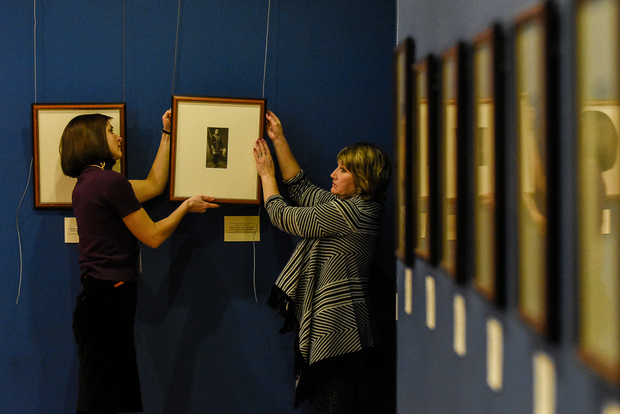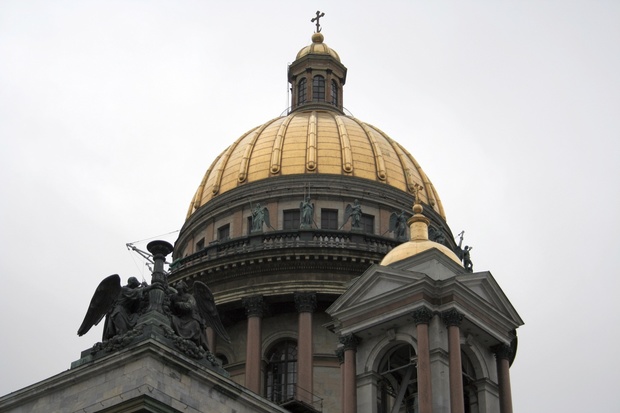Mikhail Piotrovsky: ''Petersburg citizens were not asked about the fate of St Isaac's Cathedral, it is insulting''
Why every language is valuable and why the avant-garde is not the path of the Hermitage
Director General of the State Hermitage Mikhail Piotrovsky traditionally came to the capital of Tatarstan for opening of the next exhibition in the center Hermitage-Kazan. Before the presentation of the Imperial porcelain exhibition, he found time to give to Realnoe Vremya the exclusive interview.
''The Hermitage Museum dictates fashion''
Today a number of museums, including the Tretyakov gallery, has began to build very creative, even avant-garde, programmes to attract visitors. Is the Hermitage doing something in this direction?
The Hermitage does nothing, absolutely nothing in this direction because the Hermitage is not a museum, it is the enormous historical organism. What many museums around the world are doing today, the Hermitage has long done it already. In particular, one of the forms of the museum activities is the Hermitage-Kazan. This is a totally unique thing, the praparation of which took years. Today the Louvre Abu Dhabi is being opened, but it opens by the model of the Hermitage-Amsterdam, Hermitage-Kazan. We were the first, the Hermitage established its own system, everything that is creative today in the museum world, the Hermitage was first to make. The Hermitage already for a long time on a global scale has set the fashion for museums, but the Hermitage as a museum unit is very conservative and big, it can experiment not changing its nature. All the frills, which are called creativity, they should serve to museology and not to be isolated.
But the changes that have been made in the halls of the Hermitage in Kazan by the employees of the Tretyakov gallery at the exhibition The Genius of the Century, how did you perceive them?
We have good light bulbs after that.
Is the Hermitage planning to open new centers?
Opening of the new centres is an absolutely unique thing, unfortunately, few people understand. It's like in the 1920's, from many central museums and from the Hermitage including, there were taken things and distributed to the provinces. Only in a small number of museums we have brilliant results, in general this experiment was conducted without use. Hermitage centers must occupy the right niche in the cities where they open. They must not interfere but help the museums there. This is a great and hard preparation work that we're conducting. We have been prepared our centre in Amsterdam for a long time, the negotiations took five years.

''The Hermitage is not a museum, it is the enormous historical organism. What many museums around the world are doing today, the Hermitage has long done it already. In particular, one of the forms of the museum activities is the Hermitage-Kazan.'' Photo: Oleg Tikhonov
There was a thorough preparation in Kazan, too.
We have been heading for this for five years, we held exhibitions, we discussed all the details, the result was as it should be. Now we have big plans to open centers, we have centers in Vyborg, Italy. Now we are preparing to open centers in Yekaterinburg, Omsk, Vladivostok, Moscow, Barcelona. But it develops very gradually because it's all piece goods, they should be treated very carefully. Any haste will lead to just usual outward appearance, which then fails. It is important that in the place where you plan to open an Hermitage center, there was a permanent interest because interest has to be provided by money. In Kazan it succeeds one hundred percent, so our colleagues from the cities, where it is planned to open centers, come to see how it's done in Kazan.
''St. Petersburg churches — they are special''
Now it is being discussed the story with St. Isaac's Cathedral, which is being transferred to the Church...
It is a very serious problem: what is the museum and what is the temple? For people for whom culture is the main thing, for them the museum is the main temple. For those for whom religion is important — temple is temple. But there are many people, particularly, the residents of St. Petersburg, for whom the temple and the museum can co-exist.
So that means they existed in St. Isaac's Cathedral before the beginning of this story.
Yes, they existed this way. The Isaac's Cathedral was a brilliant example of how this existence can be. Therefore, when the willful decision to change everything appeared, the inhabitants of St. Petersburg were offended, it was insulting for the citizens of St. Petersburg. They were not asked. The hand was raised on the museum, which still exists both as museum and temple, it's not an ordinary temple. St. Petersburg temples have different architecture, different story. Combining the function of museum and temple, they give all they can to people. The Isaac's Cathedral needs to perform these two functions. And politicians should properly organize to enable these two functions to perform. Museum function is better performed by museum, we have many examples when in different places of our country, the museums were expelled from churches and monasteries, but the museum function where it should be is in demand. The museum workers are called back because museum function should be arranged by museum professionals.

''It is a very serious problem: what is the museum and what is the temple? For people for whom culture is the main thing, for them the museum is the main temple. For those for whom religion is important — temple is temple. But there are many people, particularly, the residents of St. Petersburg, for whom the temple and the museum can co-exist.'' Photo: visit-petersburg.ru
Because not for every visitor the church tour is pleasant. One need church one, and the other — secular one. All this is part of both secular and spiritual life. I think that the Isaak's Cathedral was an example of how it should be and will be an example of how it should be. And we will all do it.
In Tatarstan now there are being disputes about the study of the Tatar language in schools. Some parents believe that Russian children do not need to learn the Tatar language, the others tell that learning the language is a good thing, additional language will never hurt to anyone. What do you think about this issue?
I would not like to go into politics, but actually, people living on a territory should know the language of the territory. Those who said that the extra language never hurts anyone are right and not because it is practically important. Today practically only one language is needed — English. This, incidentally, destroyed the English, now the whole world speaks terrible English. The British are in horror from that. The language enriches, each new language makes you richer. If you live on land where there are indigenous people, you should know their language. More or less, but it is necessary.